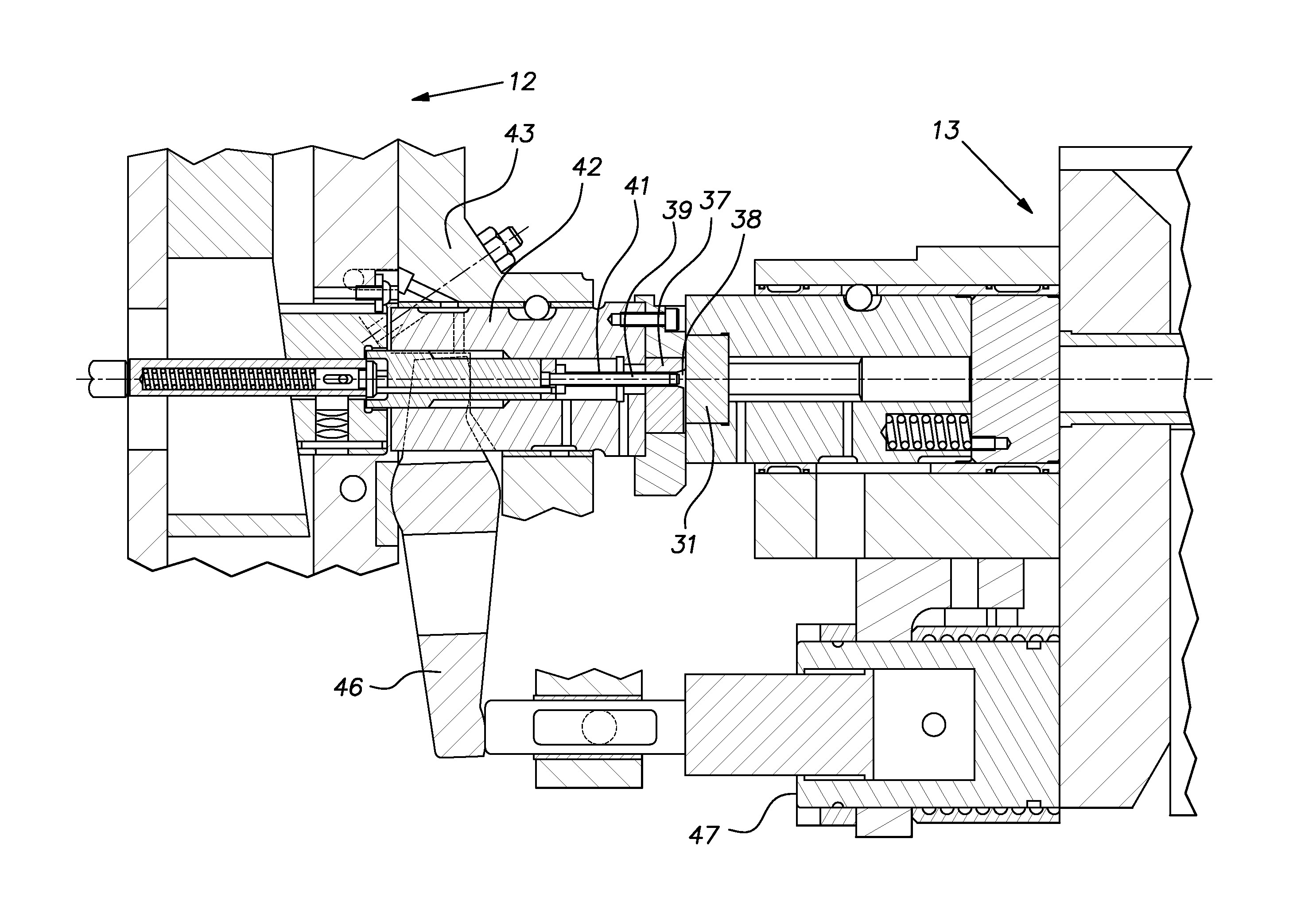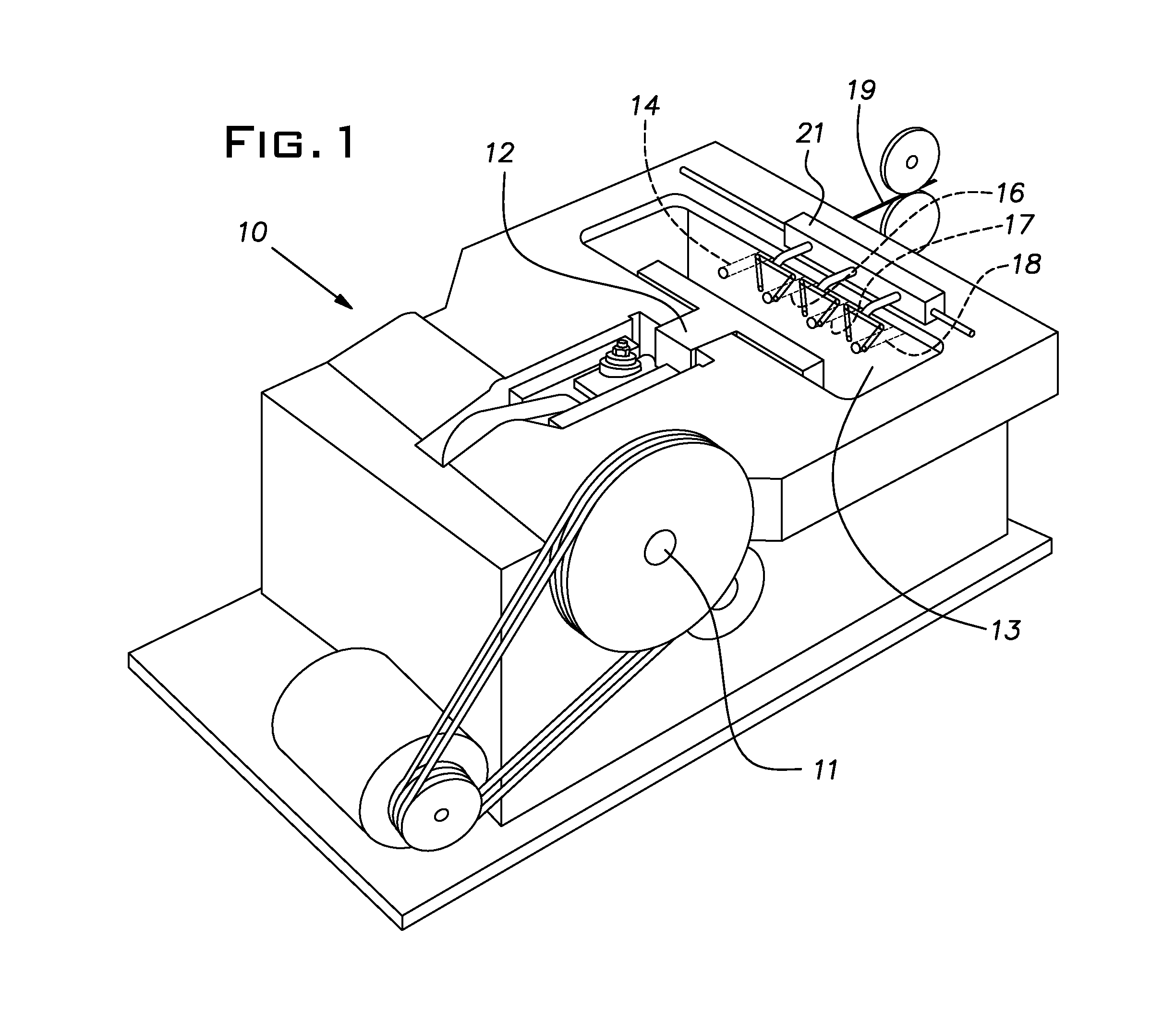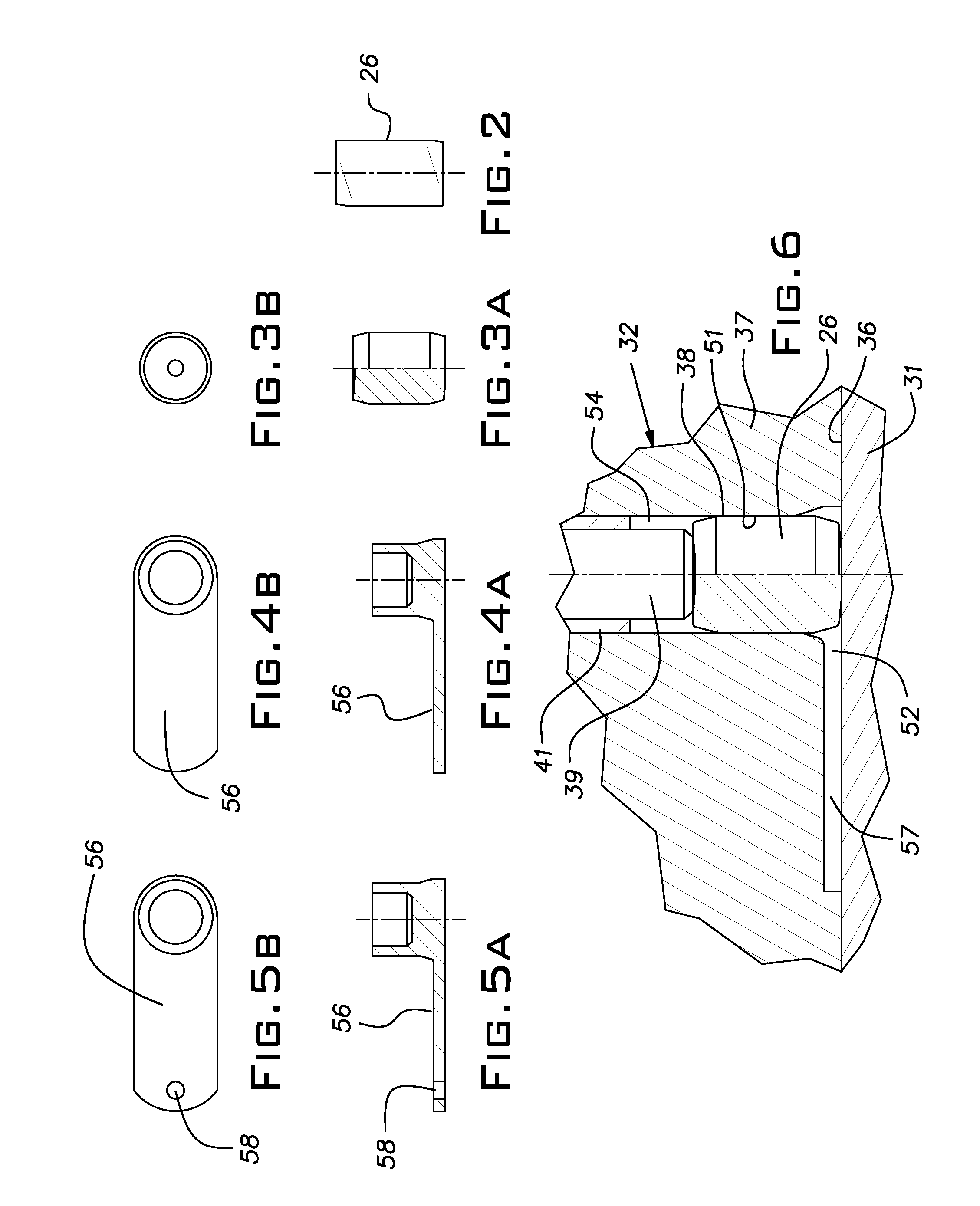Forged sideways extrusion
a sideways extrusion and forged technology, applied in forging presses, forging/hammering/pressing machines, manufacturing tools, etc., can solve the problems of limiting the amount of radial expansion that can be obtained in a single forming blow without unacceptable buckling of the blank, process physical limits, and scrap adding significant costs to the process
- Summary
- Abstract
- Description
- Claims
- Application Information
AI Technical Summary
Benefits of technology
Problems solved by technology
Method used
Image
Examples
Embodiment Construction
[0010]FIG. 1 schematically illustrates a progressive forming machine 10. Rotation of a crankshaft 11 reciprocates a ram or slide 12 towards and away from a die breast or bolster 13. The machine 10 is shown with uniformly horizontally spaced cutoff station 14 and three workstations 16-18. The invention, as will be understood with those familiar in the art, can be practiced with machines of a different number of stations. In a customary manner, blanks are cut from round wire stock 19 by a shear at the cutoff station 14 and then are transferred by a mechanism 21 to successive stations 16-18 in timed relation to reciprocation of the ram.
[0011]FIGS. 2-5 illustrate various stages of the forming of a workpiece in an application of the invention. An initial blank 26 produced at the cutoff station 14 is shown in FIG. 2. Typically, the generally cylindrical blank 26 has irregular ends, a result of the shearing process at the cutoff station 14. The blank 26 is struck in a die and punch at the ...
PUM
| Property | Measurement | Unit |
|---|---|---|
| Force | aaaaa | aaaaa |
| Shape | aaaaa | aaaaa |
Abstract
Description
Claims
Application Information
 Login to View More
Login to View More - R&D
- Intellectual Property
- Life Sciences
- Materials
- Tech Scout
- Unparalleled Data Quality
- Higher Quality Content
- 60% Fewer Hallucinations
Browse by: Latest US Patents, China's latest patents, Technical Efficacy Thesaurus, Application Domain, Technology Topic, Popular Technical Reports.
© 2025 PatSnap. All rights reserved.Legal|Privacy policy|Modern Slavery Act Transparency Statement|Sitemap|About US| Contact US: help@patsnap.com



